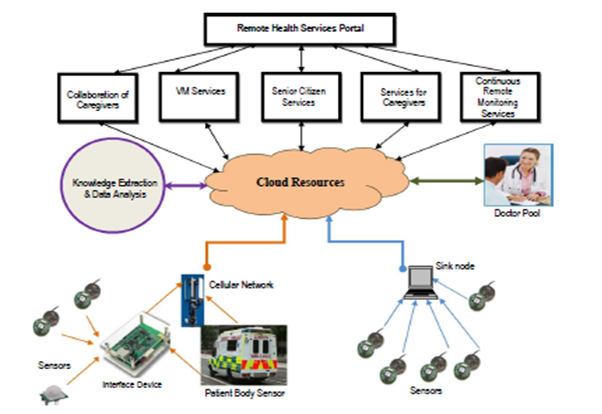


One important criterion for developing a good healthcare system is “universal access, access to an adequate level, and access without excessive burden”. In India, where nearly three quarters of 1.2 billion population lives in rural areas, providing efficient healthcare service is a significant challenge. Due to tremendous shortage of trained manpower and huge cost for setting up state-of-the-art facilities, it is often not possible to deliver proper healthcare services in the rural and remote areas. Lack of accurate and timely information further adds to the problem. It is proposed that efficient use of technology can improve the overall performance of the healthcare system and its reachability amid the citizens of India. The advancements of the Internet, wireless mobile computing, sensor networking and cloud computing technologies have led to cutting-edge research in a wide variety of applications that can significantly improve our daily lives, including healthcare systems (e.g., telemedicine, wellness management). The major objectives of the Remote Healthcare project are as follows: (1) to provide efficient solutions for pervasive healthcare services (e.g., Video-Medic) over wireless networks while meeting the quality of service (QoS) requirements, (2) to develop a sensor-cloud infrastructure for deployment of adaptive healthcare services remotely, and (3) to apply knowledge extraction techniques for mobile healthcare applications.